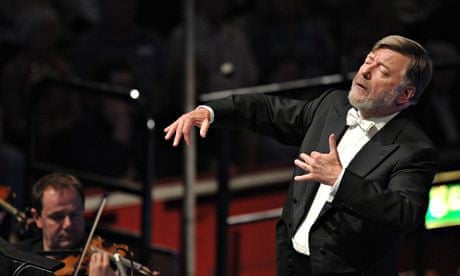 |
| Andrew Davis photo: Chris Christodoulou, bBC |
Szymanowski's Violin Concerto no 1 dates from around 1916, when he was making a creative breakthrough. To quote Jim Samson, the foremost Szymanowski scholar, writing as long ago as 1981, "the orchestra is conceived rather as a reservoir from which may be drawn an infinite variety of timbral combinations....the string body...sub divided into many parts, further characterized by the most delicate combinations of arco and pizzicato, harmonics, sul tasto, sul ponticello and tremolando effects".As Jim Samson said in his book, The Music of Karol Szymanowski (1981), in the Violin Concert no 1 "the formal scheme is totally unique and represents an ingenious solution to the problem of building extended structures without resorting to sonata form". The almost chaotic proliferation of sub groups and themes within the orchestra, contrasted with extended violin cantilenas, soaring high above the orchestra, are so refined and so rarified that they seem to propel the music into new stratospheres, beyond earthly possibilities. Mandelbrot patterns, in music, mathematically precise, yet full of the vigour of natural, organic growth. Though a contemporary of Debussy, Stravinsky and Bartók, Szymanowski's music defies category and is astonishingly prophetic. No surprise then that Boulez adored him, and made the keynote recording with Christian Tetzlaff and the Vienna Philharmonic Orchestra. I enjoyed Lisa Batiashvili's more romantic approach with Andrew Davis and the BBCSO but to really get the full wonder of the piece you need Tetzlaff and Boulez.
This concert concluded with Alain Altinoglu's suite on Debussy's Pelléas et Mélisande. Please read more about the background HERE. Nothing whatseover wrong with suites. These days there's ill-informed prejudice against them butn they serve a good purpose. In the case of Pelléas et Mélisande a suite arrangement is perfectly valid, since it focuses on the orchestral aspects of the opera - Debussy's only opera - presenting it almost as tone poem like La Mer. Thus it can be programmed more readily in the concert hall, bringing it to non-opera audiences. The opera itself is by no means a typical narrative opera, so this orchestral approach has its merits.
No comments:
Post a Comment